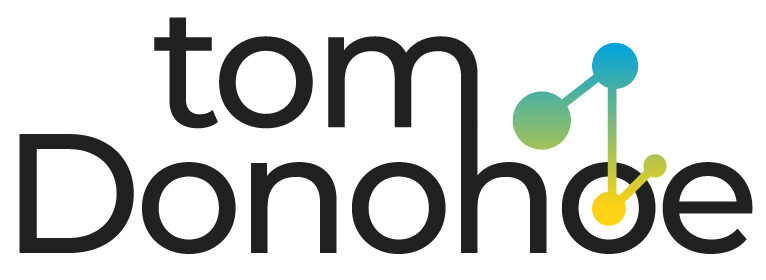Metaverse By Zuckerberg? Not quite. Understanding What the Universe Is and Its Impacts on Your Strategies

The leak of internal documents has put Facebook in a major crisis. The company was heavily criticized for its management of complex and impactful issues.
Employees on Facebook claimed that Facebook only cared about its image and profits and did not pay attention to sensitive issues happening on the platform.
Mark Zuckerberg, in the midst of this mess and out of nowhere, announced a massive rebranding of Facebook. The company will now be known as “Meta.”
Meta introduced the “Metaverse” in its video launch.
The announcement of the new brand only raised more questions.
What is the purpose of this rebranding? Is Zuckerberg the real pioneer of bringing Metaverse to the Internet?
Can Meta have a major impact on the Internet’s future?
How might this crisis impact us as marketers and managers who rely on Zuckerberg’s platform to generate our results?
Focus on Metaverse to avoid the chaos.
Zuckerberg wanted to create a positive technological image for the new brand. It wasn’t immediately clear how it would help users address the issues raised by the Facebook Papers.
What we know about Meta so far: The new brand will be closely linked to artificial intelligence and virtual reality. This will lead to a higher level of human-technology interaction.
Meta has implemented the new brand into its apps, such as WhatsApp and Instagram.
Metaverse is the next generation of immersive Internet. Metaverse believes that this change will also lead to an evolution in products as they enter a new reality.
Metaverse allows users to enter a virtual environment where they can create avatars, chat with friends, buy virtual items using cryptocurrency, and more…
Let’s first take a look at what the Metaverse is and how it might impact your brand.
Metaverse is a 2021 innovation.
No, Facebook wasn’t the first company to combine Artificial Intelligence and Augmented Reality/Virtual Reality.
AI, VR, and AR are slowly becoming part of our everyday lives.
Start with gaming, then move on to personal assistants like Siri or Google Assistant. AR is also available on Instagram, Google Search, and many other platforms. VR Goggles are also being used for different purposes.
Facebook was the first to explore the Metaverse, but is it the only company that has done so?
The answer is again no. The Metaverse was already around before Meta (Facebook).
Epic Games announced a $1 billion funding round in April of this year that would support Epic’s vision for the Metaverse.
They are not the only ones who have been in the Metaverse.
Artur Sychov (founder of Somnium Space, a Metaverse that is used by over 1,000 people every day) told Global News Facebook seemed to be taking advantage of the opportunity to integrate itself into an existing event.
This could be an early strategy to not only diverge from the most recent events but also gain market leadership so that they can be viewed as “pioneers” in the Metaverse. But they’re not.
Meta is a way to get away from Facebook’s problems.
Zuckerberg did not mention the problems with public relations that the company had when Meta was announced.
Meta (the company), it appears, has now stopped avoiding this conversation and taken some steps, including announcing plans to remove thousands of sensitive advertising targeting options and implementing a warning screen to discourage postings and comments that might be perceived as bullying or harassment.
We can only say that the CEO is the one who will know the answer. And we won’t be able to tell if he’s bluffing.
Even Zuckerberg cannot deny that the company is experiencing some serious organizational and operational problems.
Due to their complexity, the growing discussion around these topics is damaging their credibility.
They want to be the Metaverse’s first company. This is not just a matter of changing their strategies. They also want to adopt a new logo while going through one of the worst crises in confidence. It is not a coincidence.
What about users and networks
Meta can certainly lead the way in terms of social networks and technology. It is particularly true when you combine the Metaverse technology, which has been developed over the years by other companies, with the strong influence that Zuckerberg’s platforms have on society.
It can also affect future marketing.
The more interaction that takes place in a virtual environment, the greater the chance of social change in the future.
The people may begin to spend more time in a different reality. It may also affect their daily habits, behavior, and consumption.
The increasing use of smart devices, such as watches, gadgets, and other gadgets, will also connect the real world with the virtual while collecting personal data.
It’s time to think about Metaverse as a Marketer.
These changes are important to know, especially since they often come up in conversation.
It’s too early to tell what changes Metaverse (and Zuckerberg’s other brands) will bring and how consumers and users will react.
Here are some challenges that marketers and managers may face in the future.
Meta promises a new virtual world where people can do whatever they want within this new reality. Don’t forget that we exist outside.
Marketers are always challenged by changes in consumer behavior (especially when we consider that consumers may now be in two realities).
New channels offer new opportunities for customer acquisition. However, they also require new metrics, which can translate into new challenges.
The way content is created for a platform could also change. In the virtual world, we’ll be more connected to interactive experiences than just blog posts, white papers, and e-books.
Learn more about interactive content here.
What are the reactions of other companies?
Eric Schmidt expressed his real concern on Business Insider about the growing use of AI technology in our everyday lives. He is concerned not just about security but also about social issues. The digital world is based on an idealized picture, which is not always the same as reality.
Elon Musk has also stated that he does not trust AI. He is so unconvinced that he does not even give his Tesla AI a high rating.
Microsoft has a plan to launch their version of a virtual world inside Teams Meetings in 2022, according to a href= “https://www.theverge.com/2021/11/2/22758974/microsoft-teams-metaverse-3d-avatars, meeting features?scrolla=5eb6d68b7fedc32c19ef33b4”>The Verge/a>. According to The Verge, Microsoft plans to launch its version of a Virtual World inside Teams Meetings by 2022.
The idea seems simpler. Meetings will become more interactive. Meetings in which it is possible to immerse yourself in 3D rooms, with avatars who express themselves according to the character of a real person.
Microsoft’s entry into this new era will likely lead to other players joining the trend in no time.
Take advantage of the confusion to your advantage.
As marketers and business people, we need to stay informed about the changes that Facebook and Meta are making and how they could affect our brands. We can say that:
1. The social networks have proven to be a shaky ground for sowing your business’s seeds.
Indeed, having an audience engaged on the social media platform your persona prefers to use is a good strategy. You need to be cautious if you rely on Meta platforms or other social platforms for your brand.
You can start building an audience by diversifying your content and reaching out to more people. Here at Rock Content, we have a variety of options that will help! ).
2. Technology changes. Fast.
Metaverse slowly crept into our lives, whether it was on purpose or by accident. We are immersed in technology, whether it is augmented reality on the cameras of our smartphones or goggles that companies use to create immersive experiences.
Meta was born in an early market. We know, however, that it is a trend and one which will continue to grow. Market trends are important to successful marketers.
Subscribe to our newsletter to receive the latest business and marketing trends and expert opinions about their impact on your brand.





